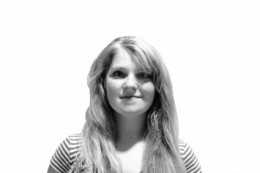
It takes enormous effort to prepare enough food to feed Binghamton University’s campus on a daily basis. The preparation of nutritious calories equates to a massive amount of organic energy passing through the dining halls. Proper time and planning are essential to dining hall operations. For the most part, all goes well — except for everything that goes unseen.
Out of those hundreds of thousands of calories consumed, how many of them were grown fairly? How was the quality of this planet improved, or degraded? How many people were able to go home and feed their families after a long day of preparing your food and how many people couldn’t? How much energy did it take to produce all of that organic energy, and was it renewable? Out of those hundreds of thousands of calories consumed, how many will fuel actions toward growth?
Human progress is supposedly at its peak, yet none of those questions could necessarily yield positive answers. Our food, the building blocks and energy for our bodies, is now grown from seeds fundamentally different from anything seen before. Some of these seeds are cultured in laboratories and others strip farmers of their sovereign land rights. Some of these seeds require draining aquifers at unsustainable rates. Other seeds are cultivated with derivatives of war chemicals that have since washed into the dead zones of the Chesapeake Bay.
Today, and every day, we need to make a choice as to what kind of future we are living for. Every action is accounted for by the interconnectedness of our globalized world. The goals we work toward are the only seeds we can ensure will be sown.
What is it going to take to build a fair food system? Truthfully, if the entire campus decided to switch today, there wouldn’t even be an infrastructure strong enough to support the change. Most agriculture, even that which is local, or certified organic, or fair trade, still competes in global markets. That means that businesses need to cut corners: burn cheap fuels, cut wages, compress animals’ living quarters. Imagine the price of a single meal if producers followed every just practice. The price would be too steep to compete with other options. As long as we operate under the current economic model, a fair food system is impossible.
We must place a higher value on quality, not quantity. Food connects mankind not only to the planet that sustains its growth, but also the people who work to make everything come together. Food, which once created communities, is now tearing them apart. It’s the quality of our relationships with the Earth we live on and the people we live among that is essential to our place as humans.
The BU Sustainable Food Group, a project under the Intellectual Decisions on Environmental Awareness Solutions (I.D.E.A.S) group, is addressing this issue by working toward a truly sustainable food system. It will require transparency between providers and consumers, because sometimes digging deeper is more important than labels. It will require that new markets are opened, like distributors that can satisfy the school’s huge demand for local, quality ingredients. As student discontent with our industrialized food operations rises, we will better be able to constructively direct our energy toward an alternative.
This Wednesday, the BU Sustainable Food Group will be completing its mission statement. Anyone interested in this project is welcome to join this exciting process. I strongly encourage anyone who is uneasy with the status quo to make their voices heard.


